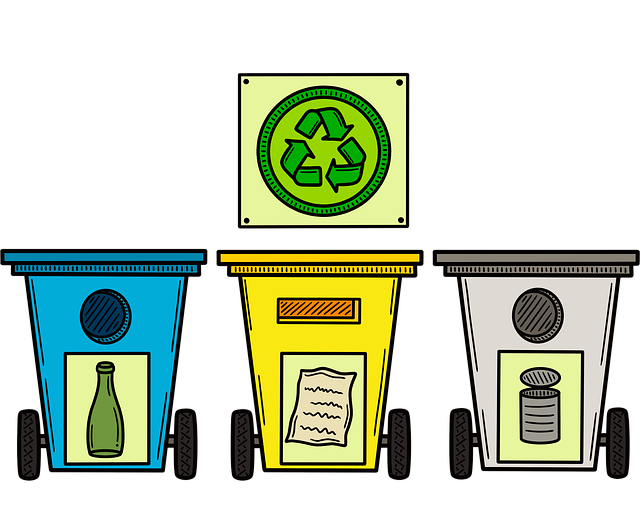New York State's (NYS) strict e-waste recycling law requires businesses and residents to handle end-of-life electronics responsibly, aligning with Boston's local practices. The city ensures safe disposal, avoids NYS penalties, and serves as a model for sustainable e-waste management while complying with state guidelines. Businesses operating in NYC or expanding to the area must understand and follow NYS e-recycling event requirements, incentivized by local initiatives focusing on data security and environmental protection. Boston's dedicated collection points empower residents to responsibly manage their e-waste under the NYS electronic recycling law, promoting a cleaner future.
“New York State (NYS) has implemented stringent NYS electronic recycling laws to protect both businesses and the environment. This article delves into the intricacies of these regulations, focusing on Boston’s role in computer disposal. We explore how Boston contributes to compliance strategies for NYS electronic recycling law, especially for businesses. By understanding their obligations, organizations can minimize environmental impact and ensure they meet legal requirements.”
- Understanding NYS Electronic Recycling Laws
- Boston's Role in Computer Disposal Regulations
- Businesses and Their Obligations
- Environmental Impact and Compliance Strategies
Understanding NYS Electronic Recycling Laws

New York State (NYS) has established comprehensive electronic waste recycling laws to ensure proper disposal of electronic devices, including computers and other e-tech. These regulations are designed to protect both public health and the environment from harmful materials commonly found in electronics. The NYS electronic recycling law requires businesses and residents to responsibly manage their end-of-life electronics, promoting a circular economy.
When it comes to understanding the best practices for Boston area electronic recycling under these state rules, NYC and Boston’s e-recycling methods align with the NYS laws. This ensures that old tech is recycled or disposed of in an environmentally responsible manner, avoiding toxic waste generation. Recycling centers in the Boston area must adhere to these guidelines, providing a safe and sustainable solution for residents and businesses looking to dispose of their electronic waste while staying compliant with both local and state regulations.
Boston's Role in Computer Disposal Regulations

Boston, a city known for its rich history and technological innovation, plays a significant role in the implementation of NYS electronic recycling laws. The state’s robust environmental initiatives for electronic recycling have found a strong ally in Boston, where understanding NYS regulations for electronic recycling programs is paramount. Local businesses and residents alike are encouraged to participate in these eco-friendly practices, ensuring proper disposal of e-waste.
The city has embraced the challenge of navigating NYS penalties for non-compliance with e-waste recycling laws, integrating them into its urban landscape. By adhering to these regulations, Boston not only contributes to a cleaner environment but also sets an example for other cities and states, demonstrating that responsible computer disposal is both a civic duty and a sustainable practice.
Businesses and Their Obligations

In New York State (NYS), businesses play a crucial role in ensuring proper disposal and recycling of electronic waste, also known as e-waste. The NYS electronic recycling law sets clear guidelines and mandates for organizations to manage their electronic assets responsibly. This includes regulations on data security and proper handling of sensitive information contained within electronics. Businesses operating in Boston, or with operations extending into NYS, must be aware of these directives and take proactive measures to comply.
One significant aspect for Boston-based businesses is understanding the requirements of e-waste recycling events under NYS law. The state offers incentives and programs to encourage companies to participate actively in local e-waste recycling initiatives. By adhering to these mandates, businesses not only contribute to environmental sustainability but also ensure they remain compliant with Boston’s regulations, which often reflect and align with broader NYS directives for electronic recycling.
Environmental Impact and Compliance Strategies

The environmental impact of improper computer disposal is significant, leading to harmful effects on ecosystems and human health. In response, New York State (NYS) has implemented the NYS electronic recycling law, which requires businesses and residents to responsibly manage end-of-life electronics. This law aims to minimize the disposal of hazardous substances found in computers and other electronic devices by promoting their reuse and recycling. For Boston residents, understanding these regulations is crucial, especially when it comes to proper e-waste management.
Compliance with the NYS standards involves establishing state-mandated e-waste collection points within the city of Boston. These collection points ensure that electronic items like computers, monitors, and mobile devices are recycled or reused appropriately. By adhering to these guidelines, Boston residents can exercise their rights as outlined in the NYS law, promoting a sustainable approach to electronic recycling. This strategy not only reduces environmental pollution but also encourages the development of an efficient e-waste management infrastructure in Boston.
NYS electronic recycling laws, specifically tailored by Boston’s regulatory framework, mandate responsible computer disposal practices for businesses. Understanding these obligations is crucial for environmental compliance and ensuring the secure handling of sensitive data. By implementing effective strategies, businesses can contribute to a greener future while mitigating potential legal issues. This comprehensive guide highlights the key aspects of computer disposal in NY, empowering both enterprises and residents to navigate these regulations effortlessly.














